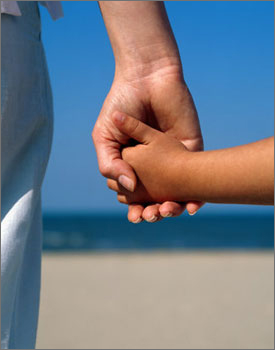| |
 |
| |
| Stress is a part of life and does not depend upon age. It can emerge at any age for anyone if the demands get too taxing. Most of the time children are presumed to be happy-go-lucky souls leading a carefree life without any tension. But the fact is children do feel stressed out just like adults. Stress can have positive as well as negative influence in children. |
| |
 |
| |
Why are children stressed out?
Stress management for children commences with identifying the real reasons behind their stress.
Stress may arise from lot of things like:
- A fight with a sibling or friend
- Moving to a new house/school
- An upcoming exam
- Parents fighting/arguing
- Being bullied
- Pressure of being outstanding in academics and /or sports
- Having nightmares
- Family related problems like parent’s death, their separation or divorce and arrival of a new sibling
|
| |
 |
| |
How is stress evident in children?
Experts believe stress in children is generally demonstrated in the form of explicit physical reaction. You may see them crying and disturbed, at times becoming aggressive, displaying defensive explosion of emotions and self relaxing behaviours, running away, complaining of headaches or stomach pain or displaying apprehensive behaviours like nail biting, hair coiling, sleep disorders etc. |
| |
Health effects:
Health wise, if stress in children is overlooked for sometime, it can instigate many serious health problems like hay fever, asthma, bowel disorders and migraine. |
|
| |
 |
| |
| Role of Parents: |
 |
- Have a chat: Talking with your children often is going to help immensely. Parents have to ensure that kids open up with them and are not curbing their feelings within.
- Compliment: Often children’s self perception about themselves can be very taxing. So it’s very important that parents don’t forget to support, encourage, praise and compliment them.
- No Pressures Please: Parents have to ensure the plans they decide for their children are in accordance with their children’s aptitude. Please don’t burden them with many after school activities like dance, music, swimming, skating, basketball, etc.
- Talk positive: Teaching your children to talk positive is going to do a lot good to them all their life. Right from an early age, install in them the habit of using positive phrases like “yes I can”, “I’ll try my best” and “yes, I can do it”.
- Establish self confidence: As parents you have to realize when to stride in and stride out of a situation. Of course your reaction will rely on your child’s maturity level. As they grow up, you have to let them handle tough situations which will help build their confidence levels. At the same time, parents need to reassure their children that they will always find them standing right next to them when they need their support.
|
| |
TOP |
|
|







